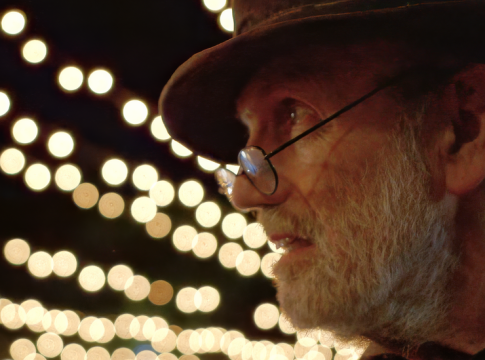David Cope: A Pioneer in Algorithmic Music Composition
A Trailblazer’s Legacy
David Cope, an influential composer whose work laid the groundwork for modern algorithmic music composition, passed away on May 4 at the age of 83 due to congestive heart failure. Residing in Santa Cruz, California, Cope’s innovations in the 1980s preceded many contemporary advances in artificial intelligence and music technology.
The Birth of a Musical Partner
In 1981, during a creative impasse while tasked with composing an opera, Cope turned to technology for assistance. He developed a unique computer program, tapping into the potential of algorithms to create music reminiscent of classical maestros like Bach and Mozart. Employing a floppy disk—an icon of early computing—Cope began to quantify musical elements from his works.
His process involved converting musical passages into numerical data, which he analyzed using a custom-built algorithm designed to identify patterns. These "signatures" could then be recombined in innovative ways, enabling Cope to produce new compositions that echoed the styles of renowned composers.
Advancing Algorithmic Composition
While Cope was not the first to utilize a computer in music creation—Lejaren Hiller and Leonard Isaacson’s "Illiac Suite" in 1957 is often credited as the first computer-generated score—his approach represented a significant leap. Cope’s program, known as Experiments in Musical Intelligence (EMI), advanced the field by not just generating notes but effectively mimicking compositional styles.
After years of refinement, EMI demonstrated its capability to produce a complete opera within hours. This kind of output was groundbreaking, showcasing how computers could undertake intricate creative processes that had traditionally been the domain of human composers, further blurring the lines between technology and art.
Implications for Today’s AI Landscape
Cope’s contributions to algorithmic music came at a time when technology was just beginning to integrate into creative fields. Today, we find ourselves in an era saturated with AI music generators and streaming platforms like Spotify, which owe a debt to early pioneers like Cope. As artificial intelligence continues to evolve, questions surrounding creativity, authorship, and the role of human artists become increasingly pertinent.
Moreover, Cope’s methods resonate with the emergence of "generative music," a concept later popularized by Brian Eno. This intersection of technology and creativity prompts us to rethink not only how music is created but also how it is experienced—in terms of both production and consumption.
A Lasting Influence
David Cope’s innovative spirit in algorithmic composition not only shaped the landscape of classical music generation but also contributed to broader discussions about AI’s role in the arts. His legacy serves as a reminder that creativity can flourish at the intersection of human ingenuity and technological progress, inviting future generations to explore uncharted musical territories.

Writes about personal finance, side hustles, gadgets, and tech innovation.
Bio: Priya specializes in making complex financial and tech topics easy to digest, with experience in fintech and consumer reviews.

